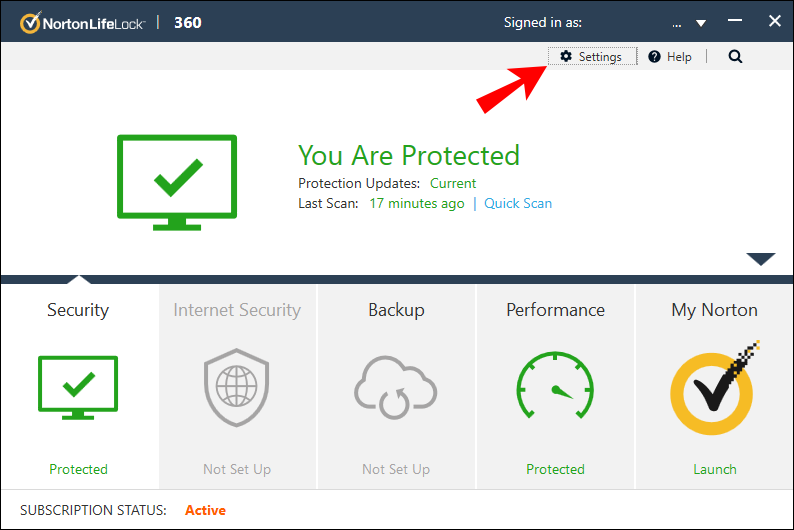Why do I keep getting Norton pop ups?
Why do I keep getting Norton pop-ups?
1. How can I stop Norton pop-ups?
To stop Norton pop-ups, do the following: In My Norton, open Device Security. In Device Security, click Settings. In Settings, click Administrative Settings. Scroll down until you see Special Offer Notification. Turn the switch to the OFF position.
2. Why do I keep getting notifications from Norton?
When your computer is idle, your Norton product runs Norton-specific automatic background tasks such as Full Scan, Automatic LiveUpdate, and Insight Optimizer. When this option is turned on, your Norton product shows the notification to inform you about the background tasks that are running.
3. How do I get rid of fake antivirus pop-ups?
To get rid of fake virus pop-ups, follow these steps: Step 1: Exit your browser. The first step to take if you encounter a fake virus alert is to close your browser. Step 2: Remove any suspicious apps or extensions. Step 3: Scan for malware. Step 4: Perform a factory reset.
4. Are Norton pop-ups legit?
It’s important to note that these fake alerts and push notifications are not legitimate and should not be trusted. Norton, like any other reputable antivirus vendor, will not send unsolicited notifications or alerts to users’ devices.
5. How do I permanently turn off Norton notifications?
To turn off Norton Task Notifications, open your Norton device security product. In the Norton product main window, click Settings. In the Settings window, click Administrative Settings. In the Norton Task Notification row, move the On/Off switch to Off. Click Apply, and then click Close.
6. Why do I keep getting Norton and McAfee pop-ups?
These messages are ‘spoofed’ (fake) messages that pretend to be from McAfee and try to make you click one of their options. If you click the options in a fake pop-up or alert, the security of your PC might be compromised. So, it’s always a best practice to read pop-ups or alert messages carefully.
7. What is suspicious network warning Norton?
Your Norton product notifies you when it identifies a MITM attack-like behavior. If you click Trust in the alert, you will not get a notification the next time you access the network. If you accidentally clicked Disconnect, you can add it back to trusted networks using Security History.
8. Why do I keep getting a notification that I have a virus?
If the virus notification appears as a pop-up while browsing a website or clicking an advertisement, you are probably on an unsecure website and are being phished by these pop-ups. You should close the website and avoid returning to it in the future.
9. Is the virus warning on my computer real?
The first step to dealing with a fake virus alert is determining whether or not it’s a virus. If you see an alert pop up on your computer, smartphone, or another device, don’t click on anything—it is likely a scam designed to trick you into installing malware.
10. Why am I suddenly getting pop-up ads?
They are caused by third-party apps installed on your phone. Ads are a way for app developers to make money, and the more ads that are displayed, the more money the developer makes.
11. Why do I keep getting pop-ups that say my computer is infected?
Generally speaking, if you’re seeing pop-ups on your device about viruses, they’re probably pop-up v

How can I stop Norton pop-ups
To stop Norton pop ups, do the following:In My Norton, open Device Security.in Device Security click Settings.In Settings click Administrative Settings.Scroll down until you see Special Offer Notification.Turn the switch to OFF position.
Cached
Why do I keep getting notifications from Norton
When your computer is idle, your Norton product runs Norton-specific automatic background tasks such as Full Scan, Automatic LiveUpdate, and Insight Optimizer. When this option is turned on, your Norton product shows the notification to inform you about the background tasks that are running.
How do I get rid of fake antivirus pop-ups
How to get rid of fake virus pop-upsStep 1: Exit your browser. The first step to take if you encounter a fake virus alert is to close your browser.Step 2: Remove any suspicious apps or extensions.Step 3: Scan for malware.Step 4: Perform a factory reset.
Are Norton pop-ups legit
It's important to note that these fake alerts and push notifications are not legitimate and should not be trusted. Norton, like any other reputable antivirus vendor, will not send unsolicited notifications or alerts to users' devices.
How do I permanently turn off Norton notifications
Turn off Norton Task NotificationsOpen your Norton device security product.In the Norton product main window, click Settings.In the Settings window, click Administrative Settings.In the Norton Task Notification row, move the On/Off switch to Off.Click Apply, and then click Close.
Why do I keep getting Norton and McAfee pop-ups
These messages are 'spoofed' (fake) messages that pretend to be from McAfee and try to make you click one of their options. TIP: If you click the options in a fake pop-up or alert, the security of your PC might be compromised. So, it's always a best practice to read pop-ups or alert messages carefully.
What is suspicious network warning Norton
Your Norton product notifies you when it identifies a MITM attack like behavior. If you click Trust in the alert, you will not get a notification the next time you access the network. If you accidentally clicked Disconnect, you can add it back to trusted networks using Security History.
Why do I keep getting a notification that I have a virus
If the virus notification appears as a pop-up while browsing a website or clicking an advertisement, you are probably on an unsecure website and are being phished by these pop-ups. You should close the website and avoid returning to it in the future.
Is the virus warning on my computer real
The first step to dealing with a fake virus alert is determining whether or not it's a virus. If you see an alert pop up on your computer, smartphone, or another device, don't click on anything — it is likely a scam designed to trick you into installing malware.
Why am I suddenly getting pop-up ads
They are caused by third-party apps installed on your phone. Ads are a way for app developers to make money, and the more ads that are displayed, the more money the developer makes.
Why do I keep getting pop-ups that say my computer is infected
Generally speaking, if you're seeing pop-ups on your device about viruses, they're probably pop-up viruses. This is even more likely to be the case if you don't have antivirus software installed (or have a different provider than the one shown in the notifications).
Is it true if a pop-up says you have a virus
A pop-up window claiming to have scanned your computer and found evidence of viruses would cause anyone alarm. However, if it comes from a company or program other than your own security software, or if it appears in a different format than you're used to, then tread carefully, as it's likely to be a scam.
How do I stop all these unwanted notifications
From any app in android notifications inform you about important updates on android. But if you want to use such apps later you may mute their alerts to disable them you can follow these steps open
How do I remove Norton notifications from Chrome
Norton Browser ExtensionsOpen Google Chrome.Click the three dots button (“Customize and control Google Chrome”) at the top right corner.Tap “More tools.”Tap “Extensions.”Find “Norton.”Turn off the toggle button.
How do I stop annoying McAfee pop-ups
And then go to your settings. You then need to go to general settings. Once you're here you now need to go to informational alert. And you then need to Simply toggle this to off. So yes this is going
Why am I suddenly getting McAfee pop-ups
Clicking on the messages lead to various websites informing the user their subscription has expired, that McAfee has detected threats on their system, or providing direct links to purchase a McAfee subscription.
Why am I getting a privacy warning on my network
It means private information, such as passwords and other sensitive data, is protected from others trying to gain access when connected to wifi networks. This warning signal is sent out by wifi hotspots, alerting users that the network may not be secure and require action before being able to connect.
What is suspicious activity has been detected on this device
A notification that there was a change to your username, password, or other security settings, and you didn't make the change. A notification about some other activity you don't recognize. A red bar at the top of your screen that says, "We've detected suspicious activity in your account."
Are fake virus notifications real
These alerts may be convincing, but they aren't real — and they don't help you or protect your computer in any way. In fact, these types of alerts are usually created by cybercriminals to try to trick you into installing malware on your device.
Are those virus notifications real
Is the Google virus warning real No. When Google says you have a virus on your phone, you are being scammed. Specifically, cybercriminals are trying to trick you into installing malware, submitting personal data, or paying for virus removal.
Why do I keep getting notifications saying I have a virus
If the virus notification appears as a pop-up while browsing a website or clicking an advertisement, you are probably on an unsecure website and are being phished by these pop-ups. You should close the website and avoid returning to it in the future.
What happens if you click on a fake virus notification
Don't Panic – Just Be Careful
Most importantly, don't click on any buttons in the fake virus alert — especially the "remove virus" or "uninstall virus" button. Clicking on these buttons won't eliminate the virus; it will just infect your device with even more malware.
How do I stop constant pop-up ads
Turn pop-ups on or offOn your Android phone or tablet, open the Chrome app .To the right of the address bar, tap More. Settings.Tap Permissions. Pop-ups and redirects.Turn off Pop-ups and redirects.
How do I permanently stop pop-up ads
On your computer, open Chrome. Settings. Pop-ups and redirects. Choose the option that you want as your default setting.
What do fake virus pop-ups look like
There are a few ways to tell if a virus alert is fake. First, if you're using a computer, look at the title bar at the top of the window. If the page title says something like "Virus Alert," "Your PC is infected," or something similar, you are probably looking at a fake Microsoft virus alert.



0 Comments